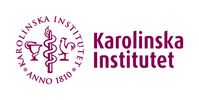Older people with bowel disease receive older medicines
[PRESS RELEASE 2017-11-13] Inflammatory bowel disease is common amongst older people and there are big differences in the choice of treatment for different age groups. Patients over the age of 60 often receive cortisone drugs instead of more modern medicines that target the immune system. This according to a large registry study from Karolinska Institutet published in Gastroenterology.

Inflammatory bowel disease includes Crohn's disease, which can affect the whole intestine, and ulcerative colitis, which affects the colon and rectum. Symptoms include blood in the stool, diarrhoea and stomach pain. Treatment consists of anti-inflammatory drugs and surgery to remove the damaged part of the intestines. The most common age of onset is 20-30, and previous studies have claimed that it is uncommon for the disease to debut over the age of 60 and when it does, it is less severe.
”We therefore sought to ascertain the incidence of inflammatory bowel disease in older age groups and if there is any difference in how they are treated and how they use the healthcare services,” says Åsa Hallqvist Everhov, researcher at Karolinska Institutet's Department of Clinical Research and Education, Stockholm South General (Söder) Hospital (KI SÖS) and colorectal surgeon at the same hospital.
The study included all new cases of inflammatory bowel disease in Sweden between 2006 and 2014. The resulting group of just under 28,000 patients was split into three sub-groups depending on year of onset: childhood (< 18), adult (18-59) and old adult (≥60). Data were sourced from the National Board of Health and Welfare's patients and prescribed drugs registers, subject to a maximum monitoring period of nine years. The researchers compared the patients' healthcare consumption with that of a matched group selected from the general population.
Just over one fifth of the participants were over 60. The study also shows that this group consumed more healthcare than the two younger groups and more than their matched peers without inflammatory bowel disease. They were also operated on more often and sooner after disease onset, often already within the first year.
”It's common, in other words, for the disease to onset after the age of 60 and we found no evidence that when it does, the disease progress is milder,” says Dr Hallqvist Everhov.
One important finding was the big difference in medication between the age groups. More younger patients received modern immunomodulating drugs and TNF inhibitors, whereas older cortisone drugs were more commonly given to the older patients.
”We don't know the reason for this, but it could be due either to under-prescription to older sufferers or to prudent choice, since the newer drugs carry certain risks and side-effects,” continues Dr. Hallqvist Everhov. ”Older patients often already have other potent drugs.”
The researchers plan to examine the causes of the treatment discrepancies in a new study.
The study was conducted in association with Söder Hospital. Linköping University, Örebro University, the University of Nottingham, Columbia University College of Physicians and Surgeons and Sachs' Children and Youth Hospital.
The research was supported by the Swedish society of medicine, Mag-tarmfonden, the Jane and Dan Olsson foundation, the Mjölkdroppen foundation, The Swedish Foundation for Strategic Research, The Swedish Research Council, The Swedish Cancer Society, The Bengt Ihre research fellowship in gastroenterology, The Bengt Ihre foundation, Karolinska Institutet foundations, the regional agreement on medical training and clinical research between Stockholm County Council and Karolinska Institutet (ALF). The study also received an unrestricted grant by Janssen Pharmaceutica NV. The authors declare no conflicts of interest.
Publication: ”Incidence and treatment of patients diagnosed with inflammatory bowel diseases at 60 years or older in Sweden”, Åsa Hallqvist Everhov, Jonas Halfvarson, Pär Myrelid, Michael C Sachs, Caroline Nordenvall, Jonas Söderling, Anders Ekbom, Martin Neovius, Jonas F Ludvigsson, Johan Askling, Ola Olén. Gastroenterology, online 1 November 2017.
Contacts
For more information, contact:
Åsa Hallqvist Everhov, MD, PhD, researcher
Department of Clinical Research and Education, Södersjukhuset (KI SÖS), Karolinska Institutet
Stockholm South General (Söder) Hospital
Phone: +46 8 616 23 49
Mobile: +46 70 226 41 27
Email: asa.hallqvist-everhov@ki.se
Images

Karolinska Institutet is one of the world’s leading medical universities. Its vision is to significantly contribute to the improvement of human health. Karolinska Institutet accounts for the single largest share of all academic medical research conducted in Sweden and offers the country’s broadest range of education in medicine and health sciences. The Nobel Assembly at Karolinska Institutet selects the Nobel laureates in Physiology or Medicine.
Subscribe to releases from Karolinska Institutet - English
Subscribe to all the latest releases from Karolinska Institutet - English by registering your e-mail address below. You can unsubscribe at any time.
Latest releases from Karolinska Institutet - English
New method reveals how the brain and inner ear are formed3.4.2025 20:00:00 CEST | Pressmeddelande
Researchers at Karolinska Institutet have developed a method that shows how the nervous system and sensory organs are formed in an embryo. By labelling stem cells with a genetic ‘barcode’, they have been able to follow the cells’ developmental journey and discover how the inner ear is formed in mice. The discovery, published in Science, could provide important insights for future treatment of hearing loss.
Fluoride in drinking water is associated with impaired childhood cognition7.3.2025 15:30:00 CET | Pressmeddelande
Elevated concentrations of fluoride can occur in well water, and in some countries, it is added to drinking water to counteract caries in the population. A study from Karolinska Institutet in Sweden now supports a few previous studies indicating that exposure to fluoride during the fetal stage or early childhood may impair cognition in children. The study is published in the journal Environmental Health Perspectives.
Children with ARFID face increased risk of disease17.2.2025 17:00:00 CET | Pressmeddelande
Children with avoidant restrictive food intake disorder (ARFID) have an elevated risk of developing psychiatric and physical conditions, a new study from Karolinska Institutet published in JAMA Pediatrics reports. The study highlights the importance of early identification to improve care of these children.
Preterm babies receive insufficient pain management27.1.2025 15:29:17 CET | Pressmeddelande
A large proportion of babies born very early need intensive care, which can be painful. But the healthcare system fails to provide pain relief to the full extent. This is shown by the largest survey to date of pain in neonatal care, now published in the journal Pain.
New study paves way for immunotherapies tailored for childhood cancers20.1.2025 17:00:00 CET | Pressmeddelande
Researchers at Karolinska Institutet and the Astrid Lindgren Children’s Hospital in Sweden have determined how children’s immune systems react to different kinds of cancer depending on their age. The study, which is published in the journal Cell, reveals significant differences between the immune response of children and adults, and has the potential to lead to new tailored treatments for children with cancer.
In our pressroom you can read all our latest releases, find our press contacts, images, documents and other relevant information about us.
Visit our pressroom